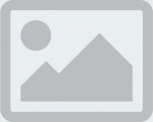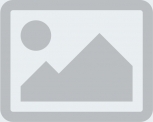Dramaturgie im zeitgenössischen Tanz ist ? positiv gemeint ? ein heißes Eisen. Idealerweise sind Dramaturginnen und Dramaturgen während der Erarbeitung eines Stücks die besten Freunde der Choreografen.![]() more
more
Let's talk European!
Towards a European public sphere - for a transnational network of newspapers and magazines in Central Eastern Europe
A media summit put on by signandsight.com in co-operation with the Goethe-Institute Prague, the Allianz Kulturstiftung, the German Embassy in Prague, the Charles University of Prague, Post Amsterdam and perlentaucher.de. Keynote speaker was the Polish journalist Adam Krzeminski.
When: Friday - Saturday, 15-16 June, 2007
Where: the German Embassy Prague and the Goethe Institute Prague
Participants: Over 50 chief editors and editors from all over Central Eastern Europe. Here is a list of the conference participants as a pdf.
Why does Europe exist as an idea and as an institution, but not as a public sphere? Debates about the Bronze Soldier in Tallinn, European history, the Muhammad cartoons, the climate change, the "no" in France and the Netherlands - Europe's most pressing questions should be debated across the continent. But despite the high quality of Europe's newspapers, its public spheres tend to end abruptly at national borders.
Over 50 chief editors and editors from all over Central Eastern Europe and beyond discussed the European public sphere, asking: How can cross-border debates be initiated? How do print and online media complement each other? What role does the English language play? How can international media networks be extended?
Summary:
"A European public sphere is a reality and at the same time a vision," said Adam Krzeminski in his keynote speech, for Europeans "continue to live primarily with their own national media, even if these are published by 'foreign' media concerns." And yet," he stresses, "in spite of everything, slivers of a European public sphere are part of our daily experience."
In the European media landscape, ambitious projects like the French-German television station ARTE, for example, are rays of hope. Yet we are still miles away from truly wide-ranging European media: "We desperately need a source where we learn what Europeans are thinking, and that reaches key players and opinion makers. That's what's missing today. We know our neighbours think differently than we do, but we don't know why. There is no programme, no broad vision that sees European perspectives as a corrective to overtly national ones. Yet before media can come together in a network, the renationalisation and increasing provincialism of national media must be overcome", said Krzeminski.
But what form should it take, this European media landscape? "We need several leading media, and many levels of media networking," said Krzeminski. To this end the web platform signandsight.com is a first step toward "The European Review of Books" could be.
Much discussion at the media summit focussed on hurdles facing the media on the way to Europeanisation, such as language barriers, national egoism, copyrights and the challenges posed by global and local markets. These difficulties do not effect everyone in the same way: "We have a European debate, but it's being conducted by Anglo-Saxon media like the Financial Times, which many European elites already consider the European media par excellence," says Andre Wilkens of the Open Society Institute. "Leading British media are closely linked to American journalists. But should we leave it to the British and the Americans to establish a European public sphere? What we need is a common European intellectual market, and signandsight.com is at the forefront of this idea," said Wilkens.
The discussion compared a number of projects linking readers, institutions, journalists and editorial desks which deal with topics and values crossing linguistic, cultural and national borders. All present agreed that it would be illusory to attempt immediately to cover the entire gamut of topics across Europe. More realistic would be to start with a smaller, and more financially viable project
Of course the question of how European models may be financed was not to be avoided. The heightened international presence of large media companies by no means leads to an internationalisation of the public sphere. If such companies were to lay greater accent on the perspectives of their country of origin, Adam Krzeminski commented, more cross-border perspectives would be available. "But that doesn't happen. For example in Poland the Axel Springer AG limits itself to primarily Polish topics, to secure more readers of course. European topics play almost no role there at all." Wim Bossema of the Dutch daily newspaper de Volkskrant was more optimistic: "Perhaps it's not the readers who're not interested in Europe? Perhaps they're more interested than many media-makers think." Gerbert van Loenen of the Dutch daily newspaper Trouw stressed that touching readers personally is key to winning them over to European topics. 
One source of considerable controversy was the idea proposed by Jürgen Habermas in the Süddeutsche Zeitung of supporting quality newspapers through state funding. Krzeminski evoked the experience of intolerable encroachments on public media by governments. Dutch journalist and moderator Hans Maarten van den Brink summarised: "So I guess what's needed above all are private initiatives. It lies with us to create facts, but politics should provide ample support."
One example would be EU support for copyrights and translations. Bratislava-based Marta Simeckova, editor of the Slovakian daily newspaper "SME", stressed that "in poor countries it's impossible to pay for rights for articles by well-known authors. These voices simply receive no notice."
The English language was indisputably recognised as the lingua franca in the European media landscape. This, however, by no means runs counter to multilingualism and diversity. On the contrary, participants agreed the English language could be used first and foremost to communicate perspectives which would otherwise not be perceived by a wider, international public. "With its efforts, signandsight.com is engaging in English 'realpolitik'," commented Andre Wilkens.
All parties concurred that rather than competing with the print media, the Internet presents a significant chance for cross-border debates. "Print and online media can complement each other," said Thierry Chervel, publisher of signandsight.com, referring to debates published on the site which were subsequently taken up and comment on in printed papers and magazines.
The European Commission also recognised the potential of Internet platforms - both as a source for information and also as a forum for discussion and debate Ylva Tiveus, Director of Communication, Media and Services of the European Commission, underscored that the citizens of Europe are not best reached through the administration in Brussels, but via preferred multipliers, especially the media. Tiveus is planning an Internet Networking Day for this autumn, to strengthen networking between the key Internet platforms in the European context.
Participants agreed that despite the possibilities offered by the Internet, exchange programmes for journalists continue to be essential for deepening European understanding. Adam Krzeminski cited his experience: "In the 1970s I took part in an exchange programme between the German newspaper Die Zeit and our Polish newspaper Polityka. Something like that effects you for years afterwards. Today such programmes are few and far between, and they're getting shorter and shorter. One problem is that participants can't use the know-how they've learned abroad because the media simply aren't interested." Yet longer-term projects do exist, including those initiated by private institutions. Maribell Königer of the DIE ERSTE Stiftung in Vienna, for example, presented the Balkan Fellowship for Journalistic Excellence.
The aims and motivations of the media summit extend beyond the even summarised above, which was organised to forge the way toward closer cooperation among media in Central Eastern Europe, as well as with partner media from across Europe. Hans Maarten van den Brink closed the discussion with the words of Dutch writer Geert Mak: "Much more important than talking is making things happen. That's what signandsight.com does day in, day out." And that's what it will go on doing, as a platform for European debate.
The speakers:
Wim Bossema (Amsterdam) is a staff-writer on international affairs at the Dutch daily newspaper "de Volkskrant", and editor of saturday supplements "Het Betoog" (the Argument).
Hans Maarten van den Brink (Amsterdam) is director of the Dutch Cultural Broadcasting Fund and writes for several European newspapers and magazines. His first novel "De Vooruitgang" was published in 1993. His international literary breakthrough came with "Over het water" (1998).
Tatjana Brode (Bonn, Berlin) is the deputy chief editor of eurotopics.net.
Thierry Chervel (Berlin) is publisher of signandsight.com and perlentaucher.de which, with 500,000 visitors per month, is the largest German-language cultural magazine on the Internet.
Adam Krzeminski (Warsaw) has been editor of the Polish journal "Polityka" since 1973 and is well known as an expert on Polish-German relations. His publications include: "Polen im 20. Jahrhundert" (Munich, 1998) and "Deutsch-polnische Verspiegelung" (Holzhausen, 2001).
Gerbert van Loenen (Amsterdam) is deputy editor of "Trouw" newspaper.
Stephan Nobbe (Prague) is director of the Goethe-Institute Prague and head of the Goethe-Institutes in the region Central Eastern Europe.
Bara Prochazkova (Prague) is reporter in chief at the Czech daily "Prazsky denik," and board member of the network n-ost. This organisation associates 150 journalists working as correspondents from Central and Eastern Europe for German speaking media.
Marta Simeckova (Bratislava) is the editor of the Slovakian daily newspaper "SME".
Janos Szeky (Budapest) editor and media columnist for "Élet és Irodalom", and translator of fiction works by Vladimir Nabokov, Thomas Pynchon, Djuna Barnes, Mary Renault, and many others.
Ylva Tiveus (Brussels) is Director for Communication tools in the European Commission's Communication Directorate, and is responsible among other things for the Internet site EUROPA.
Lidia Varbanova (Bulgaria, Canada, The Netherlands) is Website Manager of labforculture.org, and runs the Center for Intercultural and Social Development in Montreal.